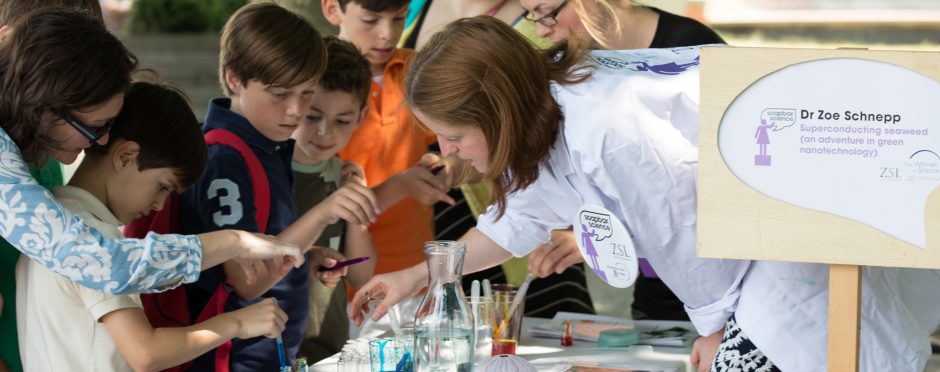 Dora Dzvonyar (@DzDorie) is an Informatics PhD candidate and avid lecturer at Technical University of Munich, who will be taking part in Soapbox Science Munich on 7th July! Her talk is entitled: “Dealing with change in development”
Dora Dzvonyar (@DzDorie) is an Informatics PhD candidate and avid lecturer at Technical University of Munich, who will be taking part in Soapbox Science Munich on 7th July! Her talk is entitled: “Dealing with change in development”
SS: Why did you choose a scientific career?
DD: I think that the scientific career chose me! I never considered doing a PhD, but when I was a student I got in contact with the Chair for Applied Software Engineering and loved the way they worked. I particularly enjoyed the applied teaching they did, and could really imagine myself there, so I started there right after finishing my MSc. My main motivation was, and still is, getting to teach in my field. Along the way, I also got to like research, and now I enjoy the combination between the two as well as the privilege to be able to choose a topic that I am interested in and look at it really closely.
SS: How did you get your current position?
DD: I participated in several courses at the Chair for Applied Software Engineering and got to know some people there. I also worked there as a student assistant and wrote my MSc thesis there.
SS: What do you do in your everyday work life?
DD: I teach a lot! I am in charge of a large project course for software engineering which consists of 10-12 student projects in collaboration with industry. I get to teach programming, software architecture and software modeling, which is a lot of fun. My research is on software engineering education, which complements that work nicely.
SS: What is the most exciting aspect of your research?
DD: I get to look at how we can teach the software engineers of the future! They will write the systems we interact with every day, and I get to help prepare them for that career. I also make sure that they have skills beyond their technical abilities, such as learning to advocate for their technical decisions and working with people across cultures and disciplines. What’s more exciting than that?
SS: What challenges do you encounter in science?
DD: Educational research as well as software engineering research are mainly about people, so it’s hard to get measurable, tangible results and clear conclusions for the future.
SS: What are your most promising findings in the field?
DD: One of my favorite findings is that it’s not as important what skills people start a project with as many might think – the configuration of the team (i.e., how they get along) as well as the motivation of the team members to get into a certain technology can have a more profound effect on the project outcome. It’s all about people, and the software they write is a reflection on the team itself.
SS: What motivates you to give a talk at Soapbox science?
DD: It’s incredibly important to talk about science so that the public understands, and I don’t think the world places enough of an emphasis on this. People who have been to an academic conference probably know exactly what I mean 😉 Also, if my dad wasn’t a computer scientist, I probably never would have discovered that this is something I am interested in, so I’m looking forward to getting more people in contact with the field.
SS: Do you have a few words to inspire other female scientists? What can we do to attract more women to STEM fields?
DD: Just do it! You might think everyone has more experience than you, but the truth is, they are doubting themselves just as you are. Engineering and science are not about perfection, it’s about iteratively trying new things, seeing whether they work, and improving based on the results. Somebody once compared science to “farting around in the dark” – people tend to overlook the many failures when they see the successes out there
